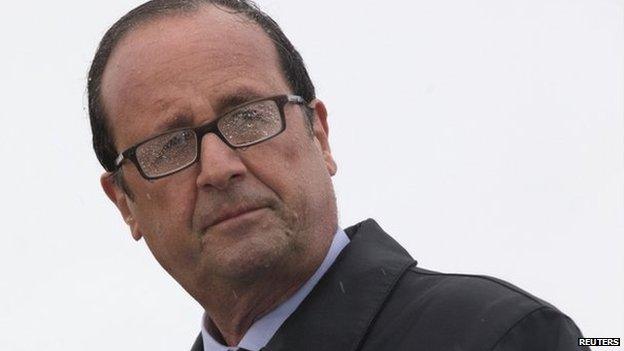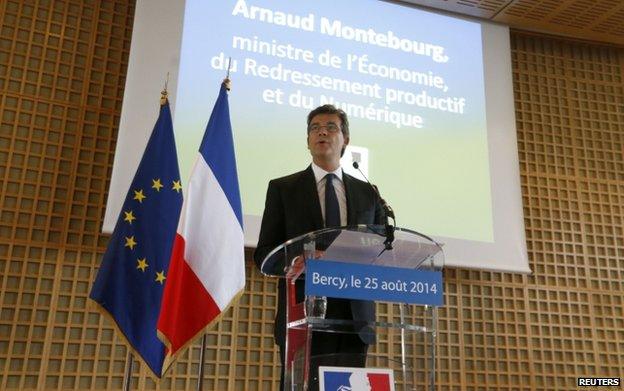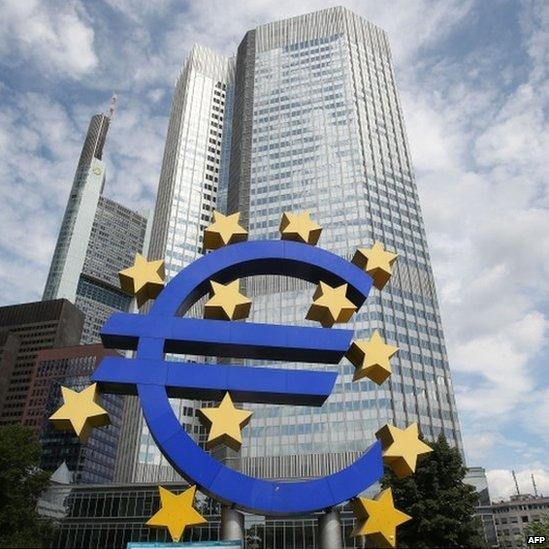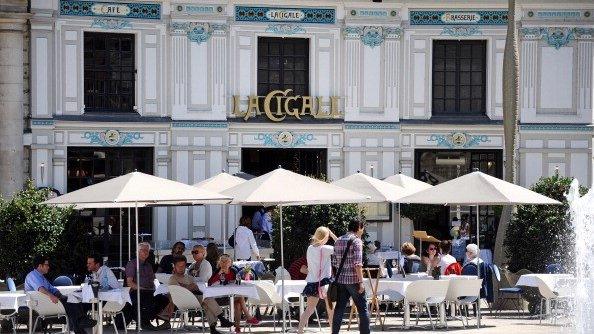France and the shadow of the euro
- Published
- comments

Francois Hollande's popularity is the lowest for a French president in more than 50 years
President Francois Hollande has been overseeing the creation of his third cabinet in two years.
The resignation of his government on Monday was partly due to feuding, personal ambition, and the divisions between centre-left politicians and socialists.
All of that was in play but behind this government breakdown was the continuing crisis in the eurozone.
Throughout the summer tension has been rising. The German economy is slowing. Business confidence has fallen for four months in a row. The French economy is stagnating. Housing starts in France have fallen by over 10% in a year. Italy is in recession.
Against this background the easy confidence of the European Central Bank (ECB) has been shaken.
Semblance of unity
The critique of Arnaud Montebourg, the economy minister who has been forced out, is shared to varying degrees in Spain, Greece and Italy. He says that austerity has caused "the most destructive crisis in Europe since 1929". The policies have "mired the eurozone in recession and soon deflation".
Ministers in Germany respond by saying that France, unlike Spain, hasn't fully embraced structural reforms that make it easier to hire and fire workers and free up the labour market.
The same accusation is levelled at Italy; that Prime Minister Matteo Renzi talks a good talk but many reforms are not fully implemented and employment laws remain too rigid.

Arnaud Montebourg was judged too outspoken in his criticism over France's economic direction
In Berlin it is easy to hear the view that President Hollande's first two years have been largely wasted; a president unwilling to face down the vested interests of the unions or to explain to the French people that their much-valued way of life is not sustainable without change.
Mr Montebourg, in particular, resents these criticisms. He accused the government of "following the extreme orthodoxy of the German right".
This did not just sound like open revolt against the government's policies but risked souring relations with Berlin. President Hollande could not accept that, although he has been critical in the past of the era of austerity made in Germany.
In the end, for his own credibility, he had to have a cabinet with the appearance of unity.
Italy watches on
The French government insists reforms have been introduced. There are the 40bn euros (£32bn; $52bn) of tax cuts for business in exchange for taking on more staff. There is the commitment to reduce spending by 50bn euros to meet EU budget targets.
But despite these headline policies unemployment remains stubbornly above 10% and the government has been forced to cut its forecasts for growth. France will also fail to meet its target - agreed with the EU - for reducing the deficit.

The European Central Bank's confidence has been rattled by the latest political crisis in France
This battle is being watched very closely in Italy. Prime Minister Renzi also believes austerity is hurting the eurozone although he has promised to keep the Italian deficit under 3%. Both France and Italy are demanding more flexibility in meeting these targets.
Ironically, this French political upheaval comes at a time when there is growing acceptance in the eurozone that a more flexible approach is needed.
Last week, European Central Bank President Mario Draghi signalled that economic policy in Europe needed to increase demand and favour growth. There is an expectation in the financial markets that later this year the ECB will start buying bonds and pump money into the European economy.
The fear stalking the eurozone is of a jobless recovery; years of stagnation which will test social cohesion.
What the French crisis has underlined is that the eurozone, despite all the claims of recovery, still has the potential to trouble governments, banks and the wider European economy.
Le Monde said the reshuffle was "the last chance for the president to save his five-year term".
- Published21 August 2014

- Published14 August 2014